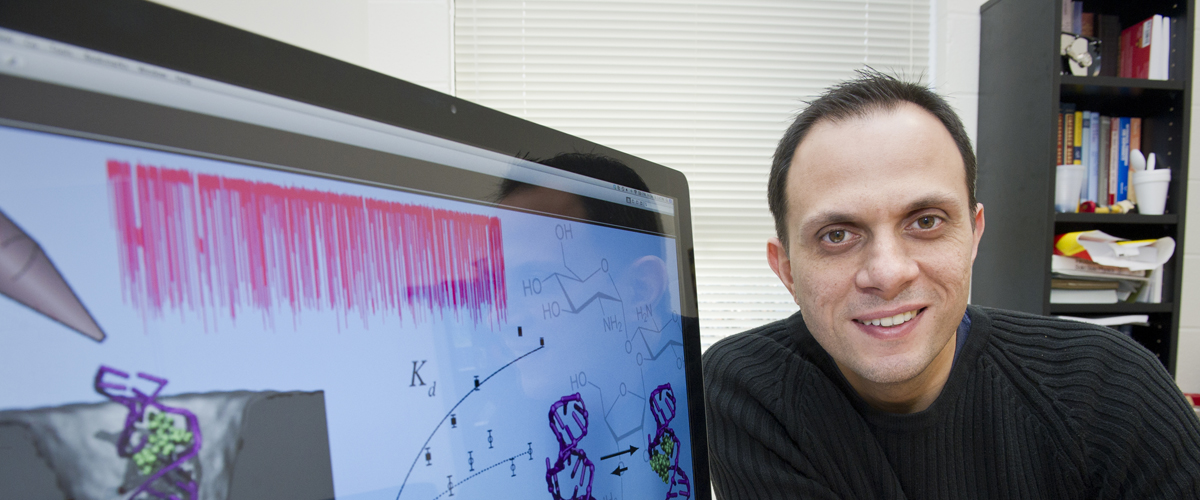BOSTON, Mass. — Northeastern University physics Prof. Meni Wanunu has received an $825,000 award from the National Human Genome Research Institute (NHGRI)—an organization that supports the development of technologies to dramatically reduce the cost of DNA sequencing in an effort to broaden the applications of genomic information in medical research and health care.
In collaboration with Jonas Korlach at Pacific Biosciences, a company that uses a novel approach for optical sequencing DNA at the single-molecule level, the team will investigate the combination of the company’s technology with Wanunu’s nanopores. The combined technique could drastically reduce the cost of the company’s current, single-molecule, real-time (SMRT) DNA sequencing, as well as reducing the amount of DNA needed to the picogram levels.
“It’s exciting to think of the potential rewards of putting our heads together to solve a really important challenge that can revolutionize personalized healthcare,” said Wanunu. “In addition, integrating two technologies sometimes enables unforeseen applications and capabilities. I’ve always admired Pacific Biosciences’ cleverness in their technology, so much that we thought of something for making it better. I hope that with the generous R21 award from the NHGRI, the only exploratory grant awarded this year, we can make cool things happen.”
Pacific Biosciences’ sequencing method harnesses the natural process of DNA duplication to follow the works of a single DNA polymerase as it replicates DNA. DNA Polymerases have evolved over millions of years to replicate DNA with high precision. The company’s technology developed an array of zero-mode waveguides (ZMWs), or nanoscale holes through an opaque metallic film, to watch these molecular wonders in action.
This novel approach to DNA sequencing can improve scientists’ ability to understand health and disease processes, provide new mechanisms to diagnose and treat medical conditions, and enhance efforts to improve the world’s food and energy supply.
“We can now access data we could not dream of getting in 2004 when we started this program — tens of thousands of human genome sequences have been generated,” said Eric D. Green, M.D., PhD, NHGRI director. “And yet, the information we would truly like to get for understanding disease and, eventually, for treating patients, requires much better quality sequence data. That is the direction we would like to go with these grants.”
Click here for the complete announcement.

